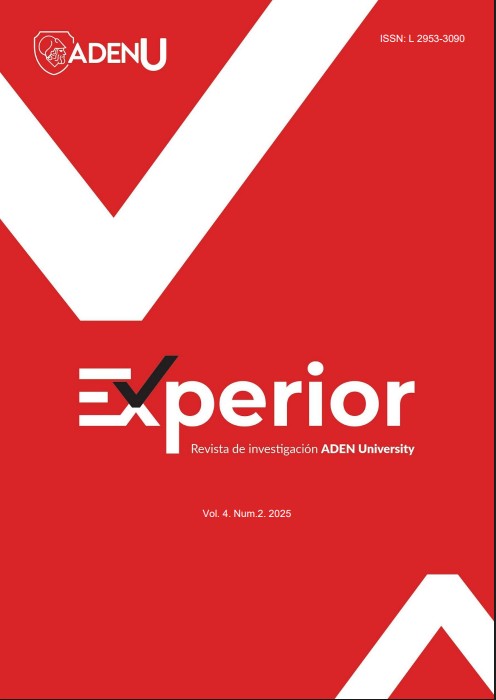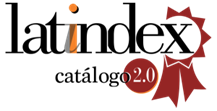Complexity theory in organizational human resource management, based on complex thinking
DOI:
https://doi.org/10.56880/experior42.2Keywords:
complexity, human management, systems thinking, organizational adaptability, transdisciplinarityAbstract
Edgar Morin's Complexity Theory, based on systems thinking and chaos theory, proposes a transformative approach to organizational management by understanding phenomena as interconnected and dynamic systems. The objective of this research was to develop the principles of Complexity Theory, based on complex thinking, in the management of human resources in organizations. This qualitative and conceptual-theoretical study analyzes its application in human resource management through a review of the most relevant authors in the field, with 29 references selected through purposive sampling based on criteria of currency, relevance, and quality, using bibliographic review and content analysis as the main techniques. The results demonstrate that this theory improves human capital management by prioritizing interactions, adaptability, and emergence, overcoming the limitations of bounded rationality and fostering transdisciplinary decision-making in uncertain environments. It was also identified that double-loop organizational learning, resilience, and emergent innovation are what enable sustainability, requiring flexible cultures and adaptive leadership. It is concluded that complexity redefines organizations as living systems, where the integration of people, processes, and contexts through complex thinking improves human management and facilitates evolution in changing contexts.
Downloads
References
Argyris, C. & Schön, D. A. (1978). Organizational Learning: A Theory of Action Perspective, Volumen 1. Addison-Wesley Publishing Company.
Becker, G. S. (1983). El capital humano. un análisis teórico y empírico referido fundamentalmente a la educación. Alianza.
Capra, F. (1996). The Web of Life: A New Scientific Understanding of Living Systems. Knopf Doubleday Publishing Group.
Del Canto, E. (2017). Gestión de la complejidad en las organizaciones: una reflexión teórica. Revista Estudios Culturales, 9 (18), 61-68. http://servicio.bc.uc.edu.ve/multidisciplinarias//estudios_culturales/num18/art04.pdf
Etkin, J. (2005). Gestión de la complejidad en las organizaciones: la estrategia frente a lo imprevisto y lo impensado. Ediciones Granica S.A.
Gell-Mann, M. & Lloyd, S. (2003). Effective Complexity. Nonextensive Entropy-Interdisciplinary Applications, 387-398. https://citeseerx.ist.psu.edu/document?repid=rep1&type=pdf&doi=dd83ba56edaf9e25a7e99f502438dd22be04e1d3
Heifetz, R. A. & Linsky, M. (2002). Leadership on the Line: Staying Alive Through the Dangers of Leading. Harvard Business Press.
Le Moigne, J. L. (2019). To focus on processes, Les Sciences de l’artificiel, cinquante ans après: Essentielle contribution épistémologique et civique à la formation des Sciences de la Cognition et des Sciences d’Ingénierie. Projectics/Proyéctica/Projectique, 24(3), 27-41. https://shs.cairn.info/revue-projectique-2019-3-page-27
Lewin, R. (1995). Complejidad: el caos como generador del orden. Metatemas 41.
Lorenz, E. (1996). The essence of chaos. The University of Washington Press.
March, J. G. & Olsen, J. P. (1976). Ambiguity and Choice in Organizations. Universitetsforlaget.
Morgan, G. (1990). Imágenes de la organización. Editorial Ra-Ma.
Morin, E. (1999). Los siete saberes necesarios para la educación del futuro. Unesco. https://edgarmorinmultiversidad.org/index.php/descarga-libro-los-7-saberes.html
Morin, E. (2007). Introducción al pensamiento complejo. https://cursoenlineasincostoedgarmorin.org/images/descargables/Morin_Introduccion_al_pensamiento_complejo.pdf
Nicolescu, B. (1996). La transdisciplinariedad. Manifiesto. Ediciones Du Rocher.
Ostos, R. de J. (2019). Construyendo la resiliencia. Impulsar una cultura ágil y disruptiva. KPMG. https://assets.kpmg.com/content/dam/kpmg/ve/pdf/2019/05/CEOOutlookCap%C3%ADtuloVenezuela.pdf
Quirós Tomás, F. J. (2015). Análisis de las tendencias en gestión de los recursos humanos desde una perspectiva académica y empresarial. [Tesis Doctoral]. Universidad de Sevilla.
Renaud Maita, C., (2012). Innovaciones en la formación de gerentes: del taller de poesía al taller de gerencia. Cuadernos del CENDES, 29(80), 153-158. https://www.redalyc.org/articulo.oa?id=40325107008
Ricardo Bray, R. G. (2004). Teoría, práctica y aprendizaje profesional. Educación y educadores, 7, 137-156. https://dialnet.unirioja.es/descarga/articulo/2041148.pdf
Robles, M. M. (2012). Executive Perceptions of the Top 10 Soft Skills Needed in Today’s Workplace. Business Communication Quarterly, 75(4), 453-465. https://doi.org/10.1177/1080569912460400
Schultz, T. W. (1961). Investment in human capital. The Economic Review, 51(1), 1-17. https://la.utexas.edu/users/hcleaver/330T/350kPEESchultzInvestmentHumanCapital.pdf
Senge, P. (1992). La quinta disciplina. El arte y la práctica de la organización abierta al aprendizaje. Editorial GRANICA.
Simon, H. A. (2021) [1947]. El comportamiento administrativo: un estudio de los procesos de decisión en las organizaciones administrativas. Errepar.
Stacey, R. D. (2001). Complex Responsive Processes in Organizations: Learning and Knowledge Creation. Routledge.
Stacey, R. D. (2007). Strategic Management and Organisational Dynamics: The Challenge of Complexity to Ways of Thinking about Organisations. Financial Times Prentice Hall.
Thompson Klein, J. (2010). A taxonomy of interdisciplinarity. The Oxford Handbook of Interdisciplinarity.
Uhl-Bien, M. (2021). Complexity leadership and followership: Changed leadership in a changed world. Journal of Change Management, 21(2), 144-162. https://doi.org/10.1080/14697017.2021.1917490
Uribe Sánchez, J. L. E. (2009). El pensamiento complejo de Edgar Morin, una posible solución a nuestro acontecer político, social y económico. Espacios Públicos, 12(26), 229-242. https://www.redalyc.org/pdf/676/67612145012.pdf
Zimmermann, A. (2000). Gestión del cambio organizacional: caminos y herramientas. Ediciones ABYA-YALA.
Downloads
Published
Issue
Section
License

This work is licensed under a Creative Commons Attribution-NonCommercial 4.0 International License.










